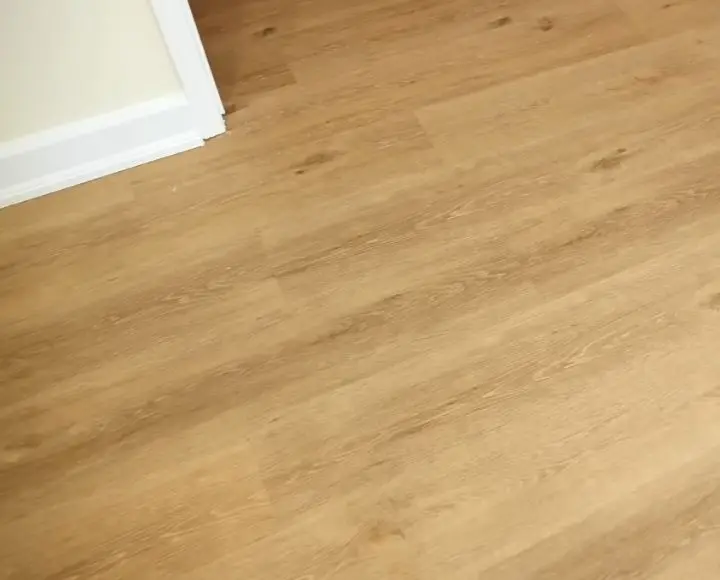Vinyl flooring is beautiful and it can certainly make your space more appealing. However, if there’s white residue on it, it can be an eyesore. If this is your predicament, you may find yourself searching for ‘how to remove white residue from vinyl floor.
Luckily, there is a way around it to help restore your floor’s lost glory, but before that, you want to find out why there is that white residue in the first place.
Why is there a White Residue on your Floor?
White residue on your vinyl floor may be caused by several things including:
Cleaning products: Did you know that vinyl floors have special cleaners dedicated to them? If not, chances are that you used just any cleaner and if it is not compatible with vinyl, you may notice the white residue.
Hard water: Hard water is mineral-rich, but this can be detrimental to your vinyl floor. If you are using the same to clean, the deposits can accumulate over time and cause white residue.
Moisture: Moisture is not your friend when it comes to vinyl flooring. Why? Simply because it can get trapped breaks down the adhesive used to fix it. This in turn can leave a white residue on the surface.
How to Remove White Residue?
All is not lost if you have white residue on your vinyl floor. Use the following methods to get rid of it.
Gasoline
Yes, you read that right! Granted, gasoline is highly flammable and hence not ideal to use, but if you are careful enough, rubbing it over your vinyl surface can eliminate any white residue on there.
That said, you want to be extremely careful when using gasoline as it may also cause discoloration and damage.
WD-40
WD-40 is another unconventional option when it comes to removing residue from your vinyl floor. This is because it is quite greasy and can potentially damage your vinyl floor.
Nevertheless, if you are careful, it will work well to eliminate any white residue on your vinyl floor.
Other options you can use to complete the same job include rubbing alcohol, vinegar solution, baking soda paste, and commercial vinyl cleaner. While at it, you also want to keep in mind that some methods may be more effective based on the cause of the white residue.
Why does Vinyl Flooring Turn Gray?
If you’ve had vinyl flooring for a while, you may realize that it is beginning to turn gray. The following are some reasons why that happens.
These include but are not limited to:
Grime and Dirt: Vinyl flooring requires regular cleaning to look appealing. If that does not happen, grime and dirt can build up on the surface making it appear dirty and gray.
Sunlight Exposure: Sun exposure is good, but too much of it can harm your vinyl flooring. If it is overexposed, chances are that it will discolor and fade to a dull and gray-looking tone.
Water Damage: If moisture or water is seeping into your vinyl flooring, it can cause discoloring of the floor to gray, or worse still, develop mold and mildew.
Chemical Damage: If you want to maintain the look of your vinyl floor, you want to avoid using harsh solvents and chemicals when cleaning it. These may cause it to gray over time.
How to Clean Gray Vinyl Flooring
Vinyl is a special material but it is not that hard to clean. Follow the following steps to guarantee safety and maximum cleanliness.
- Sweep or vacuum your floor to eliminate loose dirt and debris.
- Add your floor cleaner to some warm water and mix.
- Get a piece of absorbent cloth or mop and dampen it with your solution.
- Gently scrub your vinyl floor. Do not apply a lot of pressure.
- Focus on particular areas where there is discoloration or staining.
- After a gentle scrub, rinse the area and dry it.
As you clean, keep in mind that it is necessary to do a patch test on your vinyl floor to ensure that your cleaner will not discolor or damage your vinyl flooring.
Moreover, it is advisable to clean your vinyl floor regularly to avoid discoloration.
Disadvantages of Vinyl Flooring
While vinyl is a great material to choose for your floor, it does come with several disadvantages that you should know about.
It is prone to scratches: Vinyl is a relatively durable material, but that does not mean it is invincible. If you have pets or children, they can easily scratch it leaving you with an eyesore.
Tends to fade: After a while, vinyl will begin to discolor or fade especially if it is constantly exposed to sunlight.
Not eco-friendly: Vinyl flooring may contain hazardous material due to a super-intensive manufacturing process. This makes it less eco-friendly compared to other options.
Can be slippery: Nobody wants a slippery floor as it can cause serious accidents. With vinyl, you can expect the same as the material tends to be slippery.
FAQs
Why does my vinyl floor have white residue?
It could be one of several reasons, but the main culprit is the use of hard water as it is mineral-dense.
Can I use vinegar to eliminate white residue from vinyl flooring?
Yes, you can. This is a cheap, safe, and effective way to keep your vinyl floor in top condition. Just mix water and vinegar in equal parts and use a piece of cloth dampened in the solution to wipe.
Is there anything to be avoided when cleaning vinyl floors?
Yes, there are. For instance, you want to avoid abrasive cleaners given that they may cause scratches. Others include bleach, harsh chemicals, and ammonia that may cause discoloration on your vinyl floor.
Can I enlist the services of an expert flooring cleaner to help eliminate white residue from my vinyl floor?
Yes, you can. This is particularly useful if you have tried DIY methods that failed. An expert has all the tools and know-how required to complete the job successfully.
